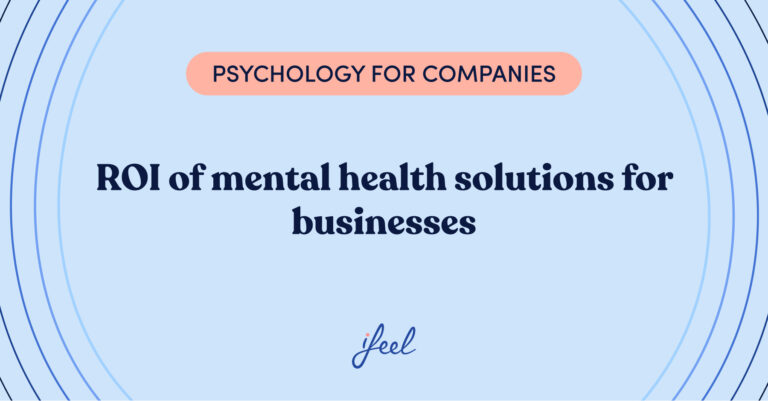Building trust in the workplace should be one of HR and manager’s priorities. Creating a culture of trust as a foundation can lead to many benefits, and most importantly, having a healthy workforce and environment. It is a company’s responsibility to provide psychological safety and support to their employees for them to thrive and have a positive employee experience.
In this article, we will explore different elements in the ‘Wheel of Trust’ and how building trust in the workplace can foster mental well-being in the workplace.

Building trust in the workplace: The Wheel of Trust
Building trust in the workplace is essential for an organisation’s success. A lack of trust between employees leads to high staff turnover, low employee engagement and autonomy, and bad communication. New research by Roffey Park on trust in workplace relationships has highlighted eight characteristic behaviours that create a trusting environment.
1. Being transparent
Being transparent in the workplace means being able to communicate openly and create a safe space for others to talk. Firstly, from HR this means being open about company news and communication and making sure everyone receives the same messages at the same time so everyone is informed about the same issues.
Secondly, from employee to manager is it important to be open and this can be done through performance reviews. These are key so that both the manager and employee can give feedback to each other about strengths and areas of improvement and therefore both their objectives are aligned.
Finally, when it comes to mental well-being, being able to talk about what triggers and what helps your mental health can be a good start. Employees can do this by using ifeel’s WAP (Wellness Action Plan) which encourages communication between employees and managers and facilitate decision-making, moreover it is confidential so no one else in the company would be able to read it.
2. Sticking to commitments
Commitment to tasks and job commitment are key to building trust in the workplace, and this is one of the most important areas that HR managers must learn to strengthen. Engaging an employee means involving them, generating interest in them, involving them in the task, proving to them that they have an important role in addressing the needs of the company.
A high level of commitment to work in the company has a positive impact on employee performance. As a result, they are more likely to be more productive, motivated and more satisfied with their job and responsibilities.
Moreover, commitment to work is closely linked to the sense of belonging, of being part of a project to which one can contribute actively and meaningfully (and wishes to contribute).
3. Demonstrating trust
Building trust in the workplace means giving and teaching them the rights tools to create job autonomy. It is clear that acquiring autonomy at work is a key milestone when hiring any employee in a company. In fact, it is inherent in the learning process. It is, quite simply, the employee’s ability to perform their duties on their own without the need for much external help or supervision.
Job autonomy is a key aspect of building trust in the workplace because the employee has proven that they can handle cerain tasks on their own and that their managers trust them enough. Autonomy at work should be fostered whenever it is considered positive for employee and team performance
4. Being personal
Fostering authentic connections with others at a fundamental human level, rather than viewing interactions solely as transactional exchanges, emerges as a crucial element in building trust in the workplace.
It is essential to maintain a respectful boundary between the personal and professional spheres, avoiding over-sharing deeply private matters. Instead, it is about sharing one’s motivations and being transparent about one’s perspectives and concerns. In essence, it is about revealing what drives you and fostering authentic communication while respecting individual boundaries.
5. Being consistent
Consistency is the cornerstone of effective communication and building trust in the workplace. It involves conveying consistent messages to colleagues and maintaining the coherence of agreements once they have been established.
Moreover, consistency goes beyond verbal communication and encompasses behavioural patterns. By sticking to a consistent way of behaving, we offer our colleagues the ability to predict our actions and responses in different scenarios. This predictability fosters trust and reliability within the team, leading to smoother collaboration and greater productivity.
6. Appreciating others
By actively recognising and celebrating the efforts of individuals, organisations not only boost morale, but also foster a sense of belonging and value among employees. This recognition goes beyond mere verbal praise and encompasses tangible actions that validate and honour team members’ contributions.
Whether through formal recognition programmes, personalised gestures of gratitude or inclusive feedback, the practice of appreciating others cultivates a culture of mutual respect and support. Ultimately, it strengthens interpersonal bonds, increases job satisfaction and strengthens the foundation of trust in the work ecosystem.
7. Listening well
Listening to another employee’s point of view is crucial for building trust in the workplace as it creates a constructive interaction between everyone. Being able to listen well also fosters open communication which we mention above.
It is about understanding their perspective. It makes employees feel respected and valued, but also helps everyone involved to get a better idea of what is going on. By better understanding each other’s points of view, you can make smarter decisions together. Also, by listening, you show that you trust and respect the person who is speaking.
When it comes to HR listening to employees, they can do it through various ways. This can include:
- Performance reviews
- Surverys
- Exit interviews
- Team buildings
8. Demonstrating vulnerability
When you are open about your vulnerabilities, whether it’s admitting a mistake, sharing a personal struggle, or expressing uncertainty, it humanises you in the eyes of your co-workers. They see you as a real person with flaws and challenges, just like them. This authenticity fosters genuine connections based on empathy and understanding. Moreover, employees are more likely to support one another and collaborate effectively. It breaks down barriers and fosters a sense of camaraderie, leading to stronger team cohesion and synergy.
When you are vulnerable, you show that you trust your colleagues enough to share your true self with them. This vulnerability, combined with consistent and reliable behaviour, reinforces trust. This helps building trust in the workplace as colleagues are more likely to trust someone who is honest about their strengths and weaknesses.

The leading mental well-being solution
Building trust in the workplace is a key aspect if we want employees to feel happy and healthy. Creating this trust should be a key pillar in the company’s corporate culture and one of HR managers’ goals.
To support companies in this process, our team of expert workplace well-being psychologists has created a mental well-being solution for businesses that improves talent retention, reduces presenteeism, and combats employee stress.
With our mental well-being solution, your company’s HR managers can receive personalised, data-driven advice on improving mental health at work. In addition, this solution offers employees a 360° mental well-being service structured at different levels according to their needs. Try our solution now to see how it could help you.
We hope you found this article on building trust in the workplace interesting. If you would like more information about our mental well-being solution for companies, just ask us and we will get in touch with your team as soon as possible.







